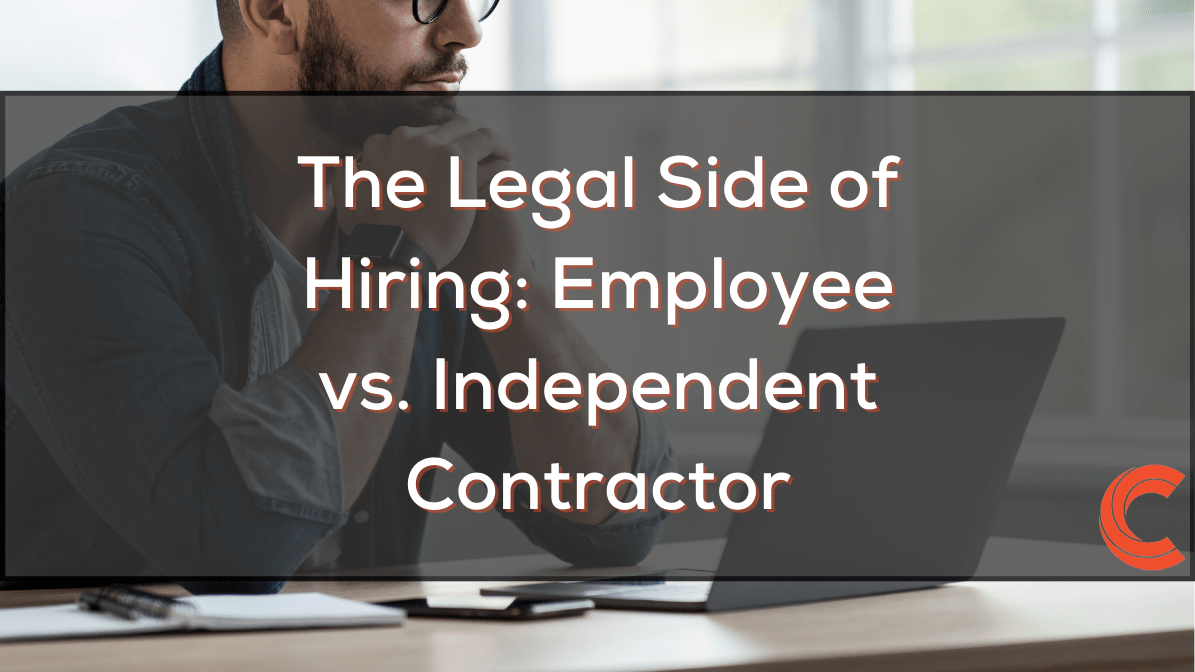The distinction between hiring employees and independent contractors carries significant legal implications. Understanding the differences between these classifications is essential for employers to navigate the complex landscape of labor laws and ensure compliance. In this comprehensive guide, we’ll delve into the legal considerations of hiring employees versus independent contractors. We’ll highlight key factors to consider and how Carbon Law Group can provide expert assistance in this area.
Employee Classification: Understanding the Basics
Employing workers as employees involves establishing a formal employer-employee relationship. Employers exercise control over the work performed, including work hours, tasks, and methods of completion. Employees typically receive benefits such as health insurance, retirement plans, and paid time off. Their compensation is subject to withholding taxes.
Key Legal Considerations for Hiring Employees
- Compliance with Labor Laws:
- Employers must adhere to federal and state labor laws governing minimum wage requirements, overtime pay, and workplace safety regulations.
- Tax Obligations:
- Employers are responsible for withholding income taxes, Social Security, and Medicare taxes from employees’ paychecks. They’re also responsible for remitting these amounts to the appropriate government agencies.
- Employment Contracts:
- Having written employment contracts that outline the terms and conditions of employment is crucial for both employers and employees. These contracts help protect the rights of both parties and clarify expectations regarding job duties, compensation, benefits, and termination policies.
Independent Contractor Classification: Understanding the Basics
Hiring workers as independent contractors involves engaging individuals or businesses to perform specific tasks or projects on a contract basis. Independent contractors maintain greater control over how, when, and where the work is performed and are responsible for their own taxes and benefits.
Key Legal Considerations for Hiring Independent Contractors
- Contractual Agreements:
- Employers should enter into written contracts with independent contractors that clearly define the scope of work, payment terms, deliverables, and project timelines.
- Tax Reporting Requirements:
- Employers must issue Form 1099 to independent contractors for payments totaling $600 or more in a calendar year. Independent contractors are responsible for reporting their income and paying self-employment taxes on their earnings.
- Worker Classification Criteria:
- The Internal Revenue Service (IRS) provides guidelines for determining whether a worker should be classified as an employee or an independent contractor. Factors such as the degree of control over the work, the method of payment, and the presence of a written contract are considered in determining worker classification.
How Carbon Law Group Can Assist
Navigating the complexities of employment law and worker classification requires expert legal guidance. Carbon Law Group specializes in providing comprehensive legal services to businesses, including guidance on employment matters, contract drafting, and compliance with labor laws. Our experienced attorneys can assess your specific needs, draft customized employment contracts, and provide ongoing support to ensure compliance with applicable regulations.
Conclusion
The decision to hire employees or independent contractors involves careful consideration of legal obligations, tax implications, and business needs. By understanding the distinctions between employees and independent contractors and seeking assistance from legal professionals like Carbon Law Group, employers can mitigate legal risks, ensure compliance with employment laws, and foster positive working relationships with their workforce.
For expert legal assistance with employment matters and worker classification issues, contact Carbon Law Group today.





